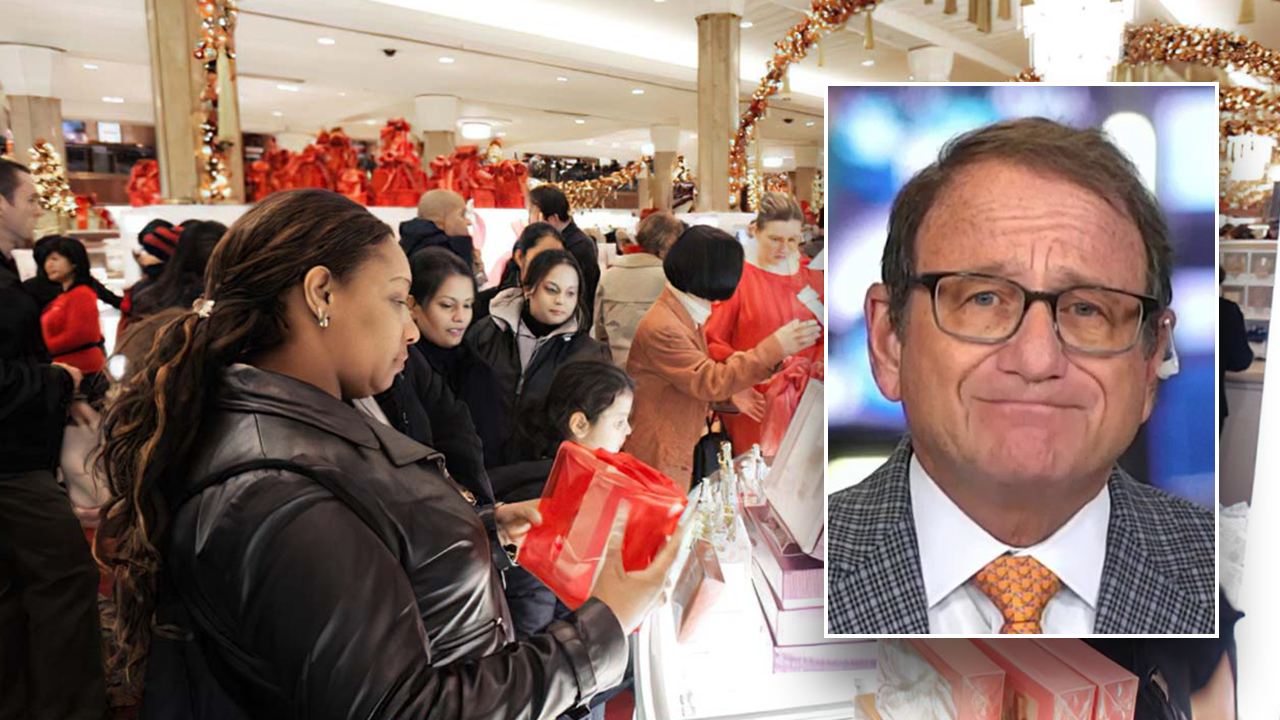One year after the Inflation Reduction Act was passed, inflation remains sticky, leaving one industry expert predicting the economy is facing a “very difficult” season.
“When that comes this fall, I believe it’s going to be a very difficult holiday season, certainly challenging for most retailers,” former Toys “R” Us CEO Gerald Storch said.
On “Cavuto: Coast to Coast” Wednesday, Storch outlined how various reports from retailers indicate a change in consumer behavior.
“Every report we hear from retailers out there is that consumers are stressed, they’re reluctant to buy goods. They are spending money on services still, some of that pandemic revenge, but when you adjust for inflation, sales of physical products are actually down for 11 straight months,” Storch said.
INFLATION ROSE 3.2% IN JULY AS PRICES TICK HIGHER FOR FIRST TIME IN A YEAR
Last week, the July consumer price index (CPI) rose 0.2% in July from the previous month, in line with estimates.
Prices climbed 3.2% from the same time last year, up from 3% in June but slightly below the 3.3% forecast from Refinitiv economists. It marked the first acceleration in the headline figure in more than a year, underscoring the challenge in taming high inflation.
“It’s far from solved,” Pulte Capital CEO Bill Pulte said during the segment with Storch. “I think we’re in a period of stagflation right now where you basically have low growth and a lot of inflation. And I can tell you, we see the needs of the American people every day on Twitter, now X. And I can tell you, people are struggling more than ever to meet shelter costs, medicine cost. Inflation hasn’t gone away, and I think we’re in the first inning.”
Persistent inflation is not the only difficultly consumers are facing, Storch said, noting other areas of economic stress.
“Not only do consumers face inflation, but they have to pay the rising interest rates any time they buy a capital good, a car, their home, whatever it might be. Additionally, credit card debt is rising, showing that they’re going into very high-interest credit cards. And by the way, as rates rise, the credit card debt rate rises. And so they’re spending the most expensive capital that they can get to buy what they need to buy in their life. And then finally, we’re facing that cliff in student loans.”
INFLATION FORCING AMERICANS TO SPEND $709 MORE PER MONTHS THAN 2 YEARS AGO: ECONOMIST
Consumers continued to see some reprieve in July. The price of used cars and trucks tumbled 1.3% over the month and are down 5.6% compared with the same time one year ago. Airline tickets also plummeted 8.1% in July, following declines in both April, May and June.
While there was a slight easing of pressure in some areas, other price gains proved persistent and stubbornly high in July. Shelter costs, which account for about 40% of the core inflation increase, rose 0.4% for the month and are up 7.7% over the past year. The Labor Department attributed 90% of the inflation spike last month to the increase in shelter costs.
Americans are spending $709 more per month on everyday goods and services than they did two years ago, according to Moody’s Analytics.
In the fight against inflation, consumers have often switched their shopping priorities, choosing to shop at value retailers with limited discretionary cash.
“[Consumers are] shifting towards value retailers,” Storch said. “For example. Target reported sales that were down fairly sharply, you know, 5% for a retailer of Target’s size, a big deal to have comp sales decline like that. They reported down five, TJ Max reported up six. That’s a 11 point spread from the retail report. TJ Max is sort of a bargain place. When Walmart reports tomorrow, I expect them to be positive also.”
Storch argued these reports illustrate how the consumer is “flocking” to lower prices rather than higher-end stores or brand names.
“History has shown since 1961 when Walmart, Target and Kmart began in the same year, that in tough times, the consumer shop at Walmart; in great times, more money to spend, then they go to Target. So all you have to look at is the Target, Walmart spread, and that really tells you where the mind of the consumer is,” he argued.
Despite the reality felt by many Americans, President Biden has championed his economic policy, dubbed “Bidenomics.”
One the one-year anniversary, Biden further touted his economic success despite conceding Thursday that Democrats’ signature Inflation Reduction Act wasn’t as much about actually reducing the then-record-high inflation facing the nation as he originally told the American people.
“I wish I hadn’t called it that. It has less to do with reducing inflation than it does providing for alternatives that generate economic growth,” Biden said during an appearance at a campaign fundraiser in Park City, Utah according to the press pool report.
Although skeptical of any politician claiming to have debt under control, Pulte noted the impact of Biden’s economic policy will “bite.”
“I think we’ve got a long way to go. President Biden, he may be the president now, but he may not see the consequences of what happens over the next five, 10, 20 years. If you look at the compound math of this situation, this problem, it’s going to be slow and sleepy. But boy, when it bites, as we learned the last couple of years, it bites.”
FOX Business’ Megan Henney and Fox News’ Houston Keene contributed to this report.
Read the full article here








